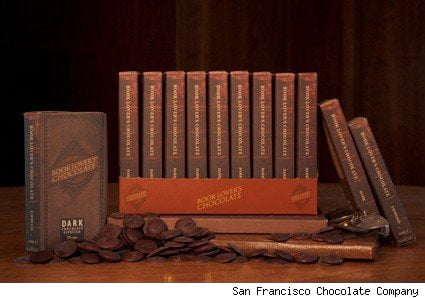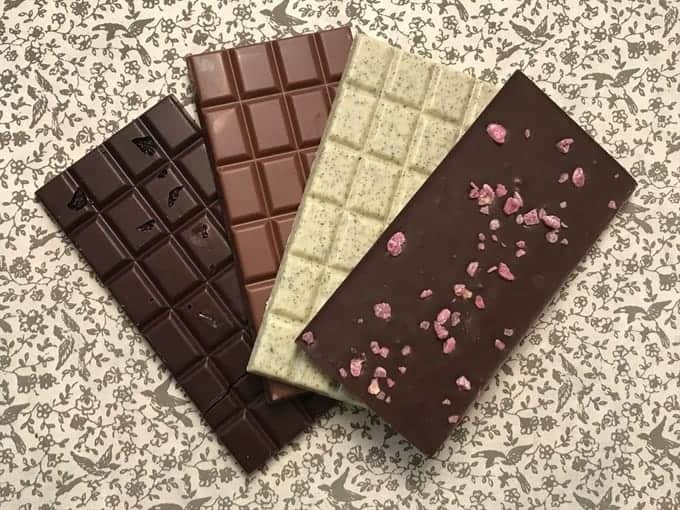Chocolate has become a staple in our modern society, but its cultural significance dates back centuries. Chocolate has been featured in various forms of literature for centuries, often symbolizing wealth, luxury, and indulgence. In this article, we will delve into the representation of chocolate in literature, its historical and cultural significance, and how it has evolved.
Chocolate in Literature: A Historical Overview
Chocolate’s association with indulgence and luxury dates back to the ancient Mayan and Aztec civilizations in Central America, where it was used in religious ceremonies and as a currency. When the Spanish conquistadors arrived in the 16th century, they brought the exotic new product back to Europe. Chocolate soon became a highly valued commodity among the wealthy and aristocratic classes, who consumed it in luxurious settings and often used it to symbolize their status.
In literature, chocolate’s association with luxury and indulgence is evident in works such as “The Chocolate House” by John Wilmot, Earl of Rochester, a poem that describes the luxury of a chocolate house in 17th-century London.
In “Sense and Sensibility” by Jane Austen, chocolate is presented as a luxury enjoyed by the upper classes, with the character Marianne Dashwood indulging in the beverage as a treat.

The Evolution of Chocolate in Literature
As chocolate became more widely available, its representation in literature evolved. In the 19th century, chocolate was often used as a symbol of temptation, with characters indulging in the beverage as a sign of weakness or moral failings. For example, in “The Picture of Dorian Gray” by Oscar Wilde, the protagonist indulges in chocolate as part of his hedonistic lifestyle.
In the 20th century, chocolate in literature began to be associated with childhood and innocence, with characters like Willy Wonka in Roald Dahl’s “Charlie and the Chocolate Factory” using the sweet treat to inspire wonder and delight their young protagonists. More recently, literature has used chocolate to explore themes such as identity, cultural heritage, and gender.

Chocolate’s Cultural Significance
Beyond its literary representation, chocolate has had a significant cultural impact throughout history. The chocolate industry has played a substantial role in global trade and commerce, with major chocolate producers such as Hershey’s and Cadbury’s establishing themselves as household names. Chocolate is also associated with holidays such as Valentine’s Day and Easter, often given as gifts or used in traditional celebrations.
Furthermore, the consumption of chocolate has been linked to health benefits such as improved cognitive function and reduced risk of heart disease. In some cultures, chocolate is used in traditional medicine and has been associated with various healing properties.
Conclusion
In conclusion, the representation of chocolate in literature has evolved, reflecting its changing cultural significance. From a symbol of wealth and luxury to a staple of childhood and innocence, chocolate has been used to explore various themes and ideas. Its importance in global commerce and cultural traditions has cemented its place in history, making it a staple of modern society.
FAQ’s
What is the historical significance of chocolate in literature?
Chocolate has been associated with luxury, indulgence, and status for centuries, dating back to the ancient Mayan and Aztec civilizations. In literature, it has been featured in works such as “The Chocolate House” by John Wilmot, Earl of Rochester, and “Sense and Sensibility” by Jane Austen.
How has the representation of chocolate in literature evolved?
In the 19th century, chocolate was often used as a symbol of temptation or moral failings, whereas in the 20th century, it became associated with childhood and innocence. More recently, chocolate has been used to explore themes such as identity, cultural heritage, and gender.
What is the cultural significance of chocolate beyond its representation in literature?
Chocolate has played a significant role in global trade and commerce and is often associated with holidays such as Valentine’s Day and Easter. It has also been linked to health benefits such as improved cognitive function and reduced risk of heart disease and has been used in traditional medicine in some cultures.
How has chocolate production and consumption changed over time?
Chocolate production and consumption have become more widespread, with major producers such as Hershey’s and Cadbury’s establishing themselves as household names. The consumption of chocolate has also become associated with holidays and traditional celebrations.